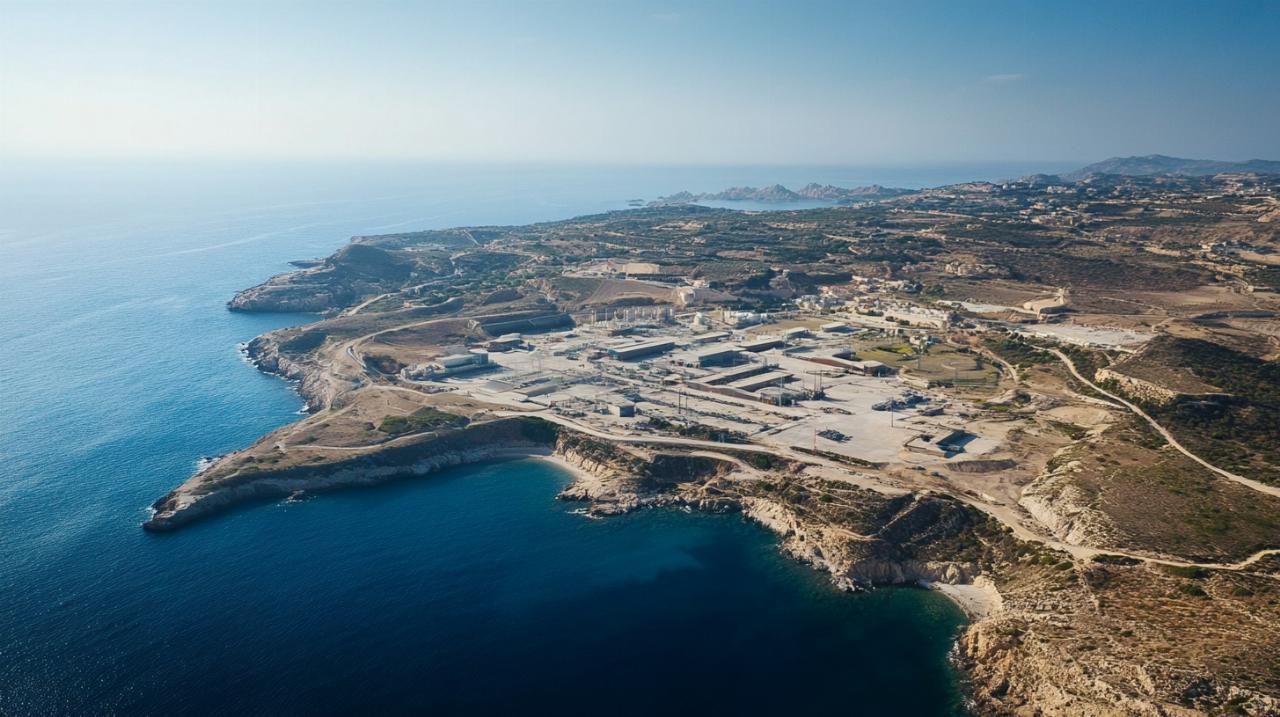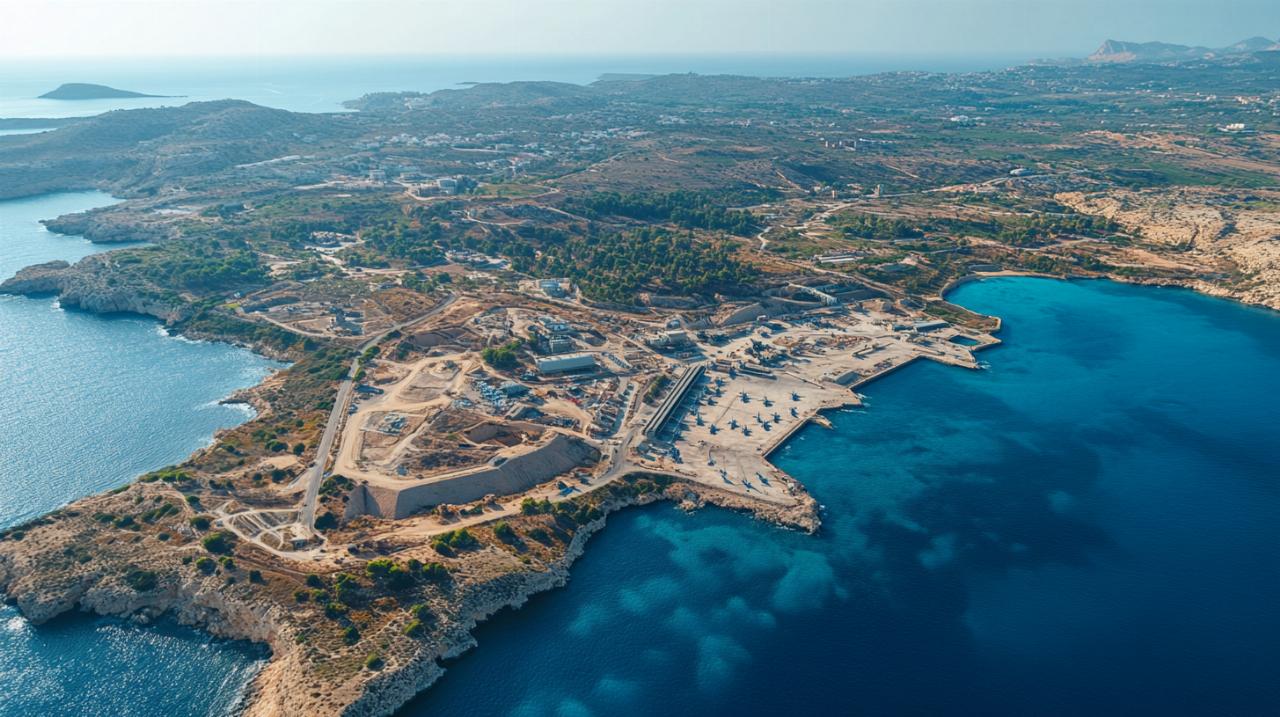Between Diplomacy and Provocation: Examining Why Military Improvements at Chafarinas and Alboran Are Considered a Provocation by Moroccan Media
The recent military upgrades on the Chafarinas and Alboran Islands have stirred considerable debate within North African media circles, particularly among Moroccan outlets that view Spain's infrastructural enhancements with a mixture of concern and suspicion. These strategic outposts, situated in the contested waters of the Western Mediterranean, have long been focal points of geopolitical sensitivity. As Spain proceeds with modernisation efforts, including the installation of solar power facilities, the response from across the strait has been swift and critical. Understanding why these actions are perceived as provocative requires a closer examination of historical grievances, territorial disputes, and the broader regional security dynamics that shape contemporary Spain-Morocco relations.
Strategic Islands Under the Spotlight: Spain's Military Enhancements and Regional Sensitivities
The Geographic and Geopolitical Significance of Chafarinas and Alboran
The Chafarinas Islands, a small archipelago consisting of Congreso, Isabel II, and Rey, lie a mere three and a half kilometres from the Moroccan coastline. Spanish possession of these territories dates back to 1848, when Spain formally claimed sovereignty over the islands. Despite their modest size, with a combined area of less than a square kilometre, the strategic importance of the Chafarinas cannot be overstated. They serve as a critical outpost within the European Union's external border and function as both a military installation and an ecological reserve. Isabel II, the only inhabited island among the three, hosts a small garrison and supports limited administrative functions. The islands were declared a National Game Reserve in 1982, underscoring their environmental significance alongside their security role.
Alboran Island, located approximately fifty-five kilometres north of the Moroccan coast and midway between Spain and North Africa, has been under Spanish control since 1540. This tiny volcanic outcrop, though uninhabited save for occasional military personnel and lighthouse keepers, occupies a pivotal position in the Mediterranean maritime corridor. The Strait of Gibraltar, often described as one of the world's most strategically sensitive chokepoints, frames the geopolitical context within which both Chafarinas and Alboran operate. The proximity of these islands to major shipping lanes, migratory routes, and the territorial waters of multiple nations means that any alteration to their military or infrastructural status inevitably attracts scrutiny from neighbouring states.
Moroccan media narratives: sovereignty concerns and historical grievances
Moroccan media outlets have been particularly vocal in their criticism of Spain's recent activities on these islands, framing the installation of solar power plants and other infrastructure as acts of provocation rather than routine maintenance. The installation of a solar power facility costing over five hundred and fifty thousand euros on the Chafarinas Islands has been interpreted by some Moroccan commentators as a deliberate assertion of Spanish sovereignty over disputed territory. Morocco has maintained longstanding claims to the Chafarinas, along with Ceuta, Melilla, and other minor Spanish sovereign territories in North Africa. These claims are rooted in a broader narrative of colonial legacy and the unfinished business of decolonisation following Morocco's independence in 1957.
The historical context is essential to understanding the depth of Moroccan sentiment. Throughout the twentieth century, the Spanish presence in North Africa was a contentious issue, with Morocco viewing these enclaves as remnants of European imperialism. The population of the Chafarinas peaked between 1877 and 1920, reaching its zenith in 1919 with over fifteen hundred residents, the majority of whom lived on Isabel II. However, following Morocco's independence and the subsequent reconfiguration of regional borders, these territories took on renewed significance as symbols of unresolved territorial disputes. The Spanish-Moroccan border, which includes both major enclaves like Ceuta and Melilla and the smaller islands, has evolved from a military demarcation into a complex frontier marked by migration pressures, diplomatic friction, and competing national interests.
Beyond bilateral relations: the multilateral dimensions of north african security
Algeria and France: Renewed Diplomatic Ties and Their Impact on Regional Dynamics
The geopolitical landscape of the Maghreb is further complicated by the evolving relationship between Algeria and France, two nations whose historical ties have been fraught with tension yet remain economically and politically intertwined. Recent diplomatic engagements between Algiers and Paris, including high-level visits and renewed cooperation agreements, have introduced an additional layer of complexity to the regional security equation. Algeria's ambitious sixty billion dollar hydrocarbon investment plan signals the country's intention to reassert its economic and political influence within North Africa, positioning itself as a counterbalance to Moroccan ambitions and Spanish interests.
France's role in this triangular dynamic is equally significant. As a former colonial power in both Algeria and Morocco, and as a key European Union member state with substantial interests in the Mediterranean, France's diplomatic posture influences the calculus of all regional actors. The renewed engagement between President Emmanuel Macron and Algerian leadership has been interpreted by some observers as a realignment that could impact Spain's strategic positioning. The intricate web of alliances, economic dependencies, and historical grievances means that any military or infrastructural development, such as the upgrades at Chafarinas and Alboran, is assessed not merely through a bilateral lens but within a broader multilateral framework that encompasses European, North African, and transatlantic interests.
The Sahara Occidental Question and Its Influence on Maghreb Stability
The ongoing dispute over the Western Sahara, or Sahara Occidental, remains one of the most intractable conflicts in the region and profoundly shapes the attitudes of Morocco, Algeria, and Spain towards territorial sovereignty and border security. Morocco's claim to the Western Sahara, contested by the Polisario Front and supported diplomatically by Algeria, has created a longstanding rift between Rabat and Algiers. This dispute has direct implications for Spain, which historically administered the territory until 1975 and maintains economic and political interests in the region.
The Western Sahara question colours Moroccan perceptions of any Spanish military activity in North Africa. From Rabat's perspective, Spain's retention and fortification of territories such as Chafarinas, Alboran, Ceuta, and Melilla can be seen as inconsistent with calls for decolonisation and self-determination elsewhere. This perceived double standard fuels the narrative that Spanish military enhancements are not merely defensive or logistical but are calculated assertions of sovereignty designed to entrench colonial-era borders. The intersection of the Western Sahara dispute with broader territorial claims creates a volatile environment in which even routine infrastructure projects can be interpreted as geopolitically significant moves.
Military Posturing or Legitimate Defence? Assessing the Intent Behind Infrastructure Upgrades
The Nature of Spanish Military Modernisation at Contested Outposts
 Spain has consistently maintained that its activities on the Chafarinas and Alboran Islands are part of a broader programme of modernising and sustaining its military and administrative infrastructure. The installation of renewable energy sources, such as the solar power plant on the Chafarinas, is presented as a pragmatic measure to reduce reliance on imported fuels, lower operational costs, and minimise environmental impact. Spanish officials argue that these upgrades are necessary to ensure the continued functionality of the islands as military outposts, ecological reserves, and symbols of Spanish sovereignty.
Spain has consistently maintained that its activities on the Chafarinas and Alboran Islands are part of a broader programme of modernising and sustaining its military and administrative infrastructure. The installation of renewable energy sources, such as the solar power plant on the Chafarinas, is presented as a pragmatic measure to reduce reliance on imported fuels, lower operational costs, and minimise environmental impact. Spanish officials argue that these upgrades are necessary to ensure the continued functionality of the islands as military outposts, ecological reserves, and symbols of Spanish sovereignty.
From a technical standpoint, the improvements are consistent with contemporary trends in military infrastructure management. The use of solar energy aligns with European Union directives on sustainability and reflects a commitment to reducing carbon footprints even in remote and strategically sensitive locations. The islands have historically served multiple roles, from military garrisons and prisons to recreational sites and environmental sanctuaries. The current phase of development seeks to balance these functions while addressing practical challenges such as energy supply, communication links, and living conditions for the small number of personnel stationed there.
Perception versus reality: provocation, deterrence, or routine maintenance?
Despite Spanish assurances, the perception among Moroccan media and some political circles remains that these upgrades are intended to send a signal. The timing and visibility of the projects, combined with the lack of prior consultation with Moroccan authorities, contribute to a narrative of provocation. The installation of a solar power plant, while ostensibly a benign infrastructural improvement, is interpreted as a deliberate demonstration of Spain's long-term commitment to maintaining control over the islands. This interpretation is reinforced by the fact that the Chafarinas lie within sight of the Moroccan coast, making any activity on the islands readily observable and symbolically potent.
The distinction between deterrence and provocation is often subjective and context-dependent. From Madrid's perspective, maintaining and upgrading military outposts is a legitimate exercise of sovereignty and a necessary component of national defence. However, from Rabat's viewpoint, such actions can appear as unilateral assertions that disregard Moroccan sensitivities and territorial claims. The challenge lies in reconciling these divergent perceptions through diplomatic engagement and confidence-building measures. The absence of transparent communication and joint mechanisms for managing cross-border issues exacerbates misunderstandings and allows minor developments to be magnified into sources of tension.
Diplomatic Pathways and Future Prospects: Navigating Tensions in the Western Mediterranean
Opportunities for dialogue amidst competing national interests
The current tensions surrounding the Chafarinas and Alboran Islands underscore the urgent need for enhanced diplomatic dialogue between Spain and Morocco. Both nations share significant economic ties, with Spain being one of Morocco's largest trading partners and Morocco serving as a key partner in managing migration flows towards Europe. The Strait of Gibraltar, which separates the two countries by a mere fourteen kilometres at its narrowest point, is a critical junction for trade, energy, and security. Effective cooperation in this region is not merely desirable but essential for the stability and prosperity of both nations.
Recent years have seen fluctuations in the quality of Spanish-Moroccan relations, with periods of cooperation punctuated by diplomatic spats over issues such as migration, territorial disputes, and the Western Sahara. The migration pressures experienced since 2012, with small boats arriving on the coasts of Melilla and the Chafarinas, have highlighted the importance of coordinated border management. In 2022, maritime arrivals in Melilla were relatively modest, with only seventy-one recorded, reflecting the effectiveness of joint efforts when political will exists. However, the sustainability of such cooperation depends on mutual respect and the avoidance of unilateral actions that can be perceived as provocative.
Regional Cooperation Mechanisms and the Role of International Mediation
Addressing the sensitivities surrounding the Chafarinas and Alboran Islands requires not only bilateral engagement but also the involvement of regional and international institutions. The European Union, given its interest in border security and stability in its southern neighbourhood, has a role to play in facilitating dialogue and providing frameworks for cooperation. Proposals for sustainable development, such as the establishment of an international research centre specialising in Mediterranean marine ecology on the Chafarinas, could transform the islands from points of contention into symbols of transnational collaboration. Such initiatives would leverage the ecological value of the islands, which are home to important seabird colonies and marine habitats, while providing economic and scientific benefits to both Spain and Morocco.
The broader Maghreb region would also benefit from enhanced multilateral mechanisms that bring together Spain, Morocco, Algeria, and other stakeholders. The interplay of territorial disputes, migration pressures, and energy interests demands a holistic approach that transcends bilateral frameworks. International mediation, whether through the United Nations, the African Union, or the European Union, could provide neutral platforms for negotiation and confidence-building. The challenge is to move beyond the historical grievances and zero-sum thinking that have characterised past interactions and to embrace a vision of shared prosperity and security. The future of the Chafarinas and Alboran Islands, and indeed the broader Mediterranean region, depends on the willingness of all parties to engage constructively and to recognise that mutual benefit is achievable through dialogue and compromise.
